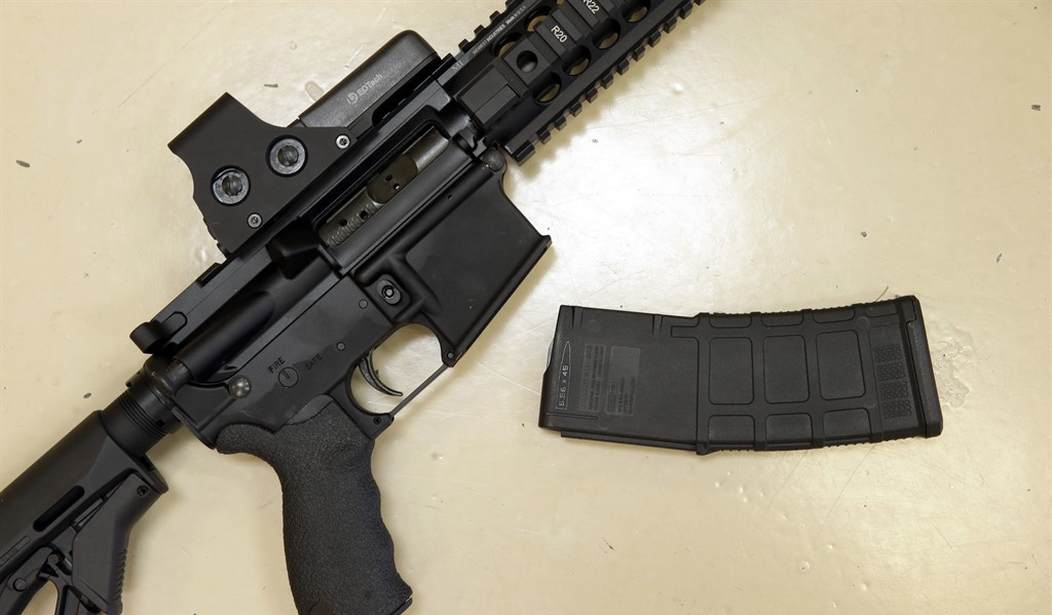Police in St. Louis, Missouri announced on Thursday that the 19-year old who murdered a teacher and student at his former high school this week had purchased the rifle used in the attack from a private seller after he previously failed a background check for a gun purchase at an area retailer. While some gun control activists are pointing to this as a reason to pass “universal background checks”, there’s been very little discussion so far about whether or not state and local police were notified about the NICS denial; something that was supposed to happen within 24 hours under a law signed by Joe Biden earlier this year.
The Bipartisan NICS Denial Notification Act was signed to great fanfare back in March, with supporters arguing the legislation would allow for more prosecutions for falsifying information on the background check forms gun buyers fill out when purchasing a firearm at retail.
“The NICS system has many flaws, one being the lack of notification to local law enforcement when a denial occurs. In many cases, local law enforcement would benefit from knowing the individual is attempting to purchase a firearm,” stated Larry Cosme, National President of the Federal Law Enforcement Officers Association (FLEOA). “This bill would ensure that gap is closed, and law enforcement can coordinate to stop prohibited persons from accessing weapons.”
For the 13 states that run their own background checks, local law enforcement can investigate prohibited persons when a background check fails. In the 37 states and the District of Columbia, where the FBI performs some or all background checks, local authorities are generally unaware when a background check is failed.
In Senator Coons’ view, the latter lack valuable law enforcement intelligence that can be used to keep their communities safe, noting individuals who are willing to “lie and try” to buy a gun may be dangerous and more likely to acquire guns through other avenues. An internal review of Bureau of Alcohol, Tobacco, Firearms and Explosives (ATF) data from 1998 to 2006 found between 10 and 21 percent of people with denied background checks were arrested for another crime involving guns. In 2020, NICS rejected over 300,000 firearms transactions—a denial rate of less than 1 percent. The denials included 42 percent who had a criminal record, while others did not qualify because they were fugitives from justice, under indictment, or had restraining orders against them.
Authorities haven’t said why the 19-year old failed his background check, and so far they’ve been mum about whether or not the Missouri State Highway Patrol or the St. Louis police department were informed as required by law. The teen attempted to purchase a gun on October 8th but was turned down, and a week later the teenager’s mother contacted police because she was concerned that her son had acquired a rifle.
Police said Thursday they did not have the authority to take the gun because Missouri does not have a red flag law.A third person, known to the family, eventually took the gun away, but Harris somehow retrieved it.Missouri Gov. Mike Parson on Thursday met in downtown St. Louis with the officers who responded to Monday’s shooting. He praised the officers, then after the meeting argued that red flag laws would not have stopped the shooting.“You got a criminal that committed a criminal act, and all the laws in the world are not going to stop those things,” Parson said.Just days before Harris attempted to purchase the gun in St. Charles, a new federal law took effect that required the FBI to notify local or state law enforcement when a person legally prohibited from purchasing firearms fails a background check by the National Instant Criminal Background Check System.The law, the NICS Denial Identification Act, stipulates the FBI notify law enforcement within 24 hours. A spokesperson for St. Charles police said earlier Thursday that they had not been notified. Neither St. Louis police nor the Missouri Highway Patrol immediately said if they had been notified.A spokesperson for the local FBI office said the background check system is run by a separate office; she did not immediately have more information.









Join the conversation as a VIP Member